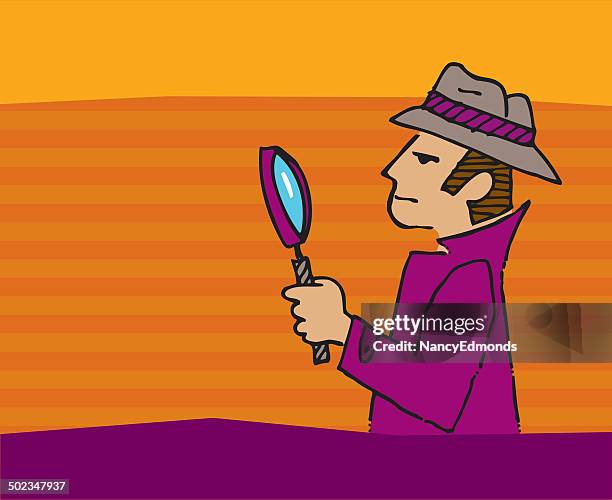Sherlock Holmes is one of the most famous fictional detectives in history, known for his uncanny ability to solve complex cases. But what sets him apart isn’t a superhuman gift—it’s his extraordinary power of observation.
While most people see the world around them in broad strokes, Holmes notices the fine details and uses them to uncover the truth.
The good news? You don’t have to be a detective to harness this skill. By sharpening your observational abilities, you can improve your problem-solving, decision-making, and even your understanding of others.
Here’s what we can learn from Sherlock Holmes about the hidden power of observation.
Why Observation Matters

Observation is more than just looking—it’s about seeing. It’s the ability to notice the details others overlook and understand their significance. In a world full of distractions, we often operate on autopilot, missing valuable information.
Holmes’ genius lies in his ability to slow down, focus, and truly see what’s in front of him. This skill isn’t just for solving crimes—it’s a tool that can enhance every aspect of your life, from your career to your relationships.
To sharpen your decision-making skills by focusing on key details, explore How to Make Smart Decisions When You’re Overwhelmed.
Lessons from Sherlock Holmes on Observation

1. Be Present in the Moment
Holmes doesn’t multitask when he observes—he immerses himself fully in the moment. Being present allows you to notice details you’d otherwise miss.
How to Apply This:
- Put away distractions, like your phone, when you’re observing or listening.
- Focus completely on your surroundings, whether it’s a conversation, a task, or a situation.
Example:
Next time you’re talking to someone, pay attention to their tone, body language, and choice of words. These clues can reveal what they’re really thinking or feeling.
2. Look Beyond the Obvious
Holmes famously said, “You see, but you do not observe.” Many people glance at things without truly noticing them. Observation requires looking deeper and questioning what you see.
Practice This Skill:
- Ask yourself: “What’s unusual or out of place here?”
- Look for patterns, inconsistencies, or hidden details.
Example:
If you’re analyzing a problem at work, don’t just focus on surface-level issues. Dig deeper to understand the root cause.
If you want to enhance your ability to see hidden opportunities, check out How to Train Your Mind to See Opportunity in Every Problem.
3. Train Your Mind to Focus on Details
Holmes’ success often comes from spotting tiny details that others miss—a smudge on a sleeve, the wear on a shoe, or the arrangement of furniture. These small clues often hold the key to larger truths.
How to Practice:
- Play observation games, like spotting differences between two images or remembering the details of a room you’ve just left.
- Challenge yourself to notice three new things about your surroundings each day.
4. Ask the Right Questions
Holmes doesn’t just observe—he interrogates the details he sees. He asks questions to uncover the story behind them.
Try This Approach:
- When you notice something unusual, ask: “Why is this here? What does it mean?”
- Be curious and dig deeper until you find answers.
Example:
If you notice a coworker seems unusually quiet, don’t just assume they’re having a bad day. Ask questions or offer support to understand the full picture.
5. Use All Your Senses
Observation isn’t just about what you see—it’s about engaging all your senses. Holmes often solves cases by noticing smells, sounds, or textures that others ignore.
Learn how simplifying your thought process can improve your observational skills in Mental Minimalism: Declutter Your Thoughts for a Happier You.
How to Do It:
- Pay attention to the sounds around you, like the tone of someone’s voice or the rhythm of their movements.
- Notice smells, textures, and even the weight of objects you handle.
6. Take Time to Reflect
Holmes often pauses to think deeply about what he’s observed, connecting the dots and forming conclusions. Reflection turns raw observations into insights.
How to Build This Habit:
- Set aside time each day to reflect on what you’ve observed.
- Journal your thoughts and look for patterns or lessons in what you’ve noticed.
The Benefits of Enhanced Observation

1. Better Decision-Making
When you notice details others miss, you can make more informed choices and avoid costly mistakes.
2. Stronger Relationships
Observation helps you understand people better, improving communication and empathy.
3. Improved Problem-Solving
By digging deeper and questioning details, you can uncover creative solutions to complex challenges.
Discover how stepping away from distractions can help you notice patterns more effectively in Digital Detox for the Mind: How to Find Creativity in Silence.
4. Increased Creativity
Observation sparks curiosity, which fuels innovation and new ideas.
Real-Life Examples of Observation at Work
1. In Business:

A sharp observer might notice subtle changes in customer behavior, allowing their company to adapt before competitors.
2. In Relationships:

Noticing small signs, like a friend’s change in tone or body language, can help you offer support when they need it most.
3. In Everyday Life:

Observing your environment can help you avoid risks, like spotting a potential safety hazard before it becomes a problem.
How to Cultivate Holmes-Like Observation

- Slow Down:
Rushing through life blinds you to details. Take time to pause and look closely. - Be Curious:
Adopt a mindset of curiosity. Treat every situation as an opportunity to learn. - Practice Daily:
Like any skill, observation improves with practice. Dedicate a few minutes each day to sharpening your awareness.
Find out how stepping away from technology can help you embrace new perspectives in Why Adopting a Beginner’s Mindset Opens Doors to Growth, According to Psychologists.
Final Thoughts
The power of observation isn’t reserved for fictional detectives—it’s a skill anyone can develop. By learning to see the details, question what’s in front of you, and reflect deeply, you can unlock new levels of understanding and problem-solving.
As Sherlock Holmes himself might say, “The world is full of obvious things which nobody by any chance ever observes.” Start noticing those things today, and you’ll be amazed at how much you can discover—and achieve.
